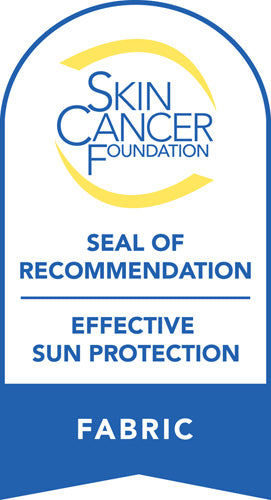Do you know how to properly protect your skin from the sun? Check out this guide to the best sunscreen for dark skin in 2024.
While skin cancer is less common in Black people, accounting for only 1-2% of all cancers, it can still be serious. Alarmingly, the five-year survival rate for melanoma is much lower for Black patients (71%) compared to white patients (94%). These statistics highlight the importance of sun protection for everyone.
Empower yourself by finding the best sunscreen for dark skin. It's a decision that depends on your preferences, but there are some key features to look for. These features include SPF 30 rating and broad-spectrum protection.
But there's more you need to know about this topic. Below, we'll help you navigate the world of sun protection. Read on for more tips:
Find Your Perfect Sunscreen and Don't Skip Skin Cancer Screenings
To answer the question, "should black people wear sunscreen," sunscreen is your daily defense against harmful UV rays. However, it's not a replacement for regular skin cancer screenings. Many dermatologists recommend getting a professional skin check once a year.
You can perform at-home mole checks between appointments using the ABCDE method. The method cuts across the asymmetry, border, color, diameter, and evolving nature of moles. Let's dissect each one below:
- Asymmetry: Look for moles with uneven shapes, where one half doesn't mirror the other
- Border: Uneven, ragged, or blurred borders on a mole are a cause for concern
- Color: Moles come in various shades, but watch out for moles with multiple colors or those that change color over time
- Diameter: Most melanomas are larger than 6 millimeters (about the size of a pencil eraser)
- Evolving: If a mole changes in appearance or texture or starts to itch or bleed, see a dermatologist as soon as possible
Like moisturizers, sunscreens come in different formulations for oily, dry, or combination skin. Oilier skin types may benefit from lightweight, oil-free lotions or gels. On the other hand, drier skin needs a more hydrating cream or lotion.
Do you sweat a lot during workouts? Opt for a water-resistant sunscreen labeled "sport" or "active." But if you spend a lot of time swimming, choose a water-resistant sunscreen with SPF 50+.
Mineral vs. Chemical Sunscreen: Understanding the Difference
When it comes to dark skin protection, mineral sunscreens are often the preferred choice. These sunscreens contain physical blockers like zinc oxide and titanium dioxide. They sit on the skin, reflecting and scattering UV rays away.
Mineral formulas are less likely to leave a white cast on deeper skin tones than chemical sunscreens. However, they can feel thicker and greasier than chemical ones. They may also require more frequent reapplication to ensure consistent protection.
Chemical sunscreens, on the other hand, have chemical ingredients that absorb UV rays. These chemical ingredients also convert UV rays into heat. The heat will then be released from the skin.
Unlike mineral formulas, chemical sunscreens are lighter in texture and feel more comfortable on the skin. They may also be sweat- and water-resistant for longer periods. On the downside, they can irritate sensitive skin and take longer to become effective, requiring application 15 minutes before sun exposure.
SPF Explained: How High Should You Go?
SPF (Sun Protection Factor) refers to a sunscreen's ability to block UVB rays. At the same time, UVB rays are the type of UV rays that cause sunburn. But here's the thing: SPF isn't a perfect measure of protection.
As such, you need to understand the SPF scale. An SPF 30 sunscreen blocks approximately 97% of UVB rays, while SPF 50 blocks 98%. While SPF 50 offers slightly more protection, the difference is minimal.
Remember, UVB rays are just one type of harmful radiation. So, look for a sunscreen labeled "broad spectrum" to ensure protection against UVA rays. UVA rays penetrate deep into the skin surface and contribute to premature aging and wrinkles.
But what's the right SPF for daily use? SPF 30 is sufficient for most people, regardless of skin tone. However, if you have a history of skin cancer, spend extended periods outdoors, or are at high altitudes, consider SPF 50.
Beyond SPF: Broad Spectrum Protection Is Key
SPF (Sun Protection Factor) only forms part of sun protection for dark skin. As such, broad-spectrum protection is crucial. It blocks UVA and UVB rays, prevents pigmentation, and focuses on long-term health.
The sun emits two main ultraviolet radiation (UV rays) types: UVA and UVB rays. SPF only measures protection against UVB rays, the culprit behind sunburns. However, UVA rays penetrate the skin and cause premature aging, wrinkles, and hyperpigmentation.
Broad-spectrum sunscreens shield your skin from UVA and UVB rays. This way, they offer more comprehensive protection. Their comprehensive protection also makes them perfect for darker skin.
Darker skin tones are more vulnerable to hyperpigmentation triggered by UVA rays. Broad-spectrum sunscreens help lower this risk by blocking these deeper-penetrating rays. While preventing sun damaged skin, they make it difficult for dark spots and uneven skin tone to form.
UVA rays also cause melanoma, which is less common in people with darker skin. But, it can be more aggressive and harder to detect early. Broad-spectrum protection for everyone, regardless of skin tone, can promote long-term skin health, preventing skin cancer risk.
Finding the Right Formula: Lotions, Sprays, Sprays, Gels, and More
Lotions are a classic choice because they offer good coverage and are easy to apply. However, thicker lotions can leave a white cast on darker skin tones. So, look for lightweight, oil-free formulas labeled "non-comedogenic" (won't clog pores) for more comfortable wear.
Sprays are convenient for quick application and reapplication, but be cautious with spray sunscreens on dark skin. Rub the product thoroughly to ensure even coverage, and smell a little of it while spraying to avoid inhaling it. You should also opt for sprays labeled "reef-safe" if you plan on spending time in the water.
Often lightweight and oil-free, gels are a good option for oily skin or those who dislike the greasy feel of lotions. Gels dry quickly and leave a minimal white cast, making them a good choice for dark skin tones. However, gels may not offer the same level of water resistance as lotions, so reapplication is crucial after swimming or sweating.
Lastly, sunscreen sticks are perfect for targeted areas like the lips and around the eyes. They're also convenient for on-the-go touch-ups. Despite this, choose sticks formulated specifically for the face, as body sunscreens might be too thick for this delicate area.
Sunscreen for Sensitive Skin: Gentle Yet Effective Options
Finding the right types of sunscreen can be challenging for those with sensitive skin or conditions like eczema. You should decide between mineral and chemical sunscreens and look for calming ingredients. Test before you apply and opt for tinted sunscreens.
Mineral sunscreens, comprising zinc oxide or titanium dioxide, sit on the skin and block UV rays. They are generally less irritating for sensitive skin and less likely to leave a white cast on darker skin tones. Chemical sunscreens, in contrast, absorb UV rays and convert them to heat, which can irritate sensitive skin.
Go for sunscreens formulated with soothing ingredients like aloe vera, oatmeal, or ceramides. These ingredients can help calm irritation and redness. Avoid sunscreens with fragrance or alcohol, which can further aggravate sensitive skin.
Always do a patch test before applying any new sunscreen to your face. Apply some to your inner arm and wait one day to see if any irritation occurs. If it does, try a different sunscreen with gentler ingredients.
Tinted sunscreens can help even out skin tone and reduce white cast. But be sure to choose a tint that matches your skin tone to avoid an unnatural appearance. Remember, tinted sunscreens still need broad-spectrum protection and an SPF of 30 or higher - something we'll discuss below.
Tinted Sunscreens: Achieving Coverage and Protection
Tinted sunscreens are a game-changer for those with darker skin tones. They come in various sheer to light coverage options that can help camouflage minor blemishes, redness, and hyperpigmentation. These options allow you to achieve a more even and natural-looking complexion without needing a separate foundation or concealer.
Mineral sunscreens, often recommended for dark skin due to their gentle nature, can sometimes leave a white cast on the skin. Tinted sunscreens can help counteract this white cast. They provide a hint of color that blends more seamlessly with darker skin tones.
Tinted sunscreens also offer a two-in-one solution, simplifying your morning routine. You can skip applying foundation or BB cream altogether and achieve a healthy, even base with just one product. These products can be a lifesaver on busy mornings or when you want a lighter makeup look.
However, it's important to consider a few things before choosing a tinted sunscreen for dark skin. The key is to find a tinted sunscreen that matches your skin tone closely. Look for brands with a broad range of shades for deeper complexions.
Consider swatching the sunscreen on your jawline to ensure it blends perfectly with your natural skin tone. The coverage level also matters since tinted sunscreens typically offer sheer to light coverage. If you have significant blemishes or hyperpigmentation, you may need to layer a light concealer on top of the tinted sunscreen for additional coverage.
While tinted sunscreens offer some coverage, sun protection remains the top priority. Choose a tinted sunscreen with a broad-spectrum SPF of 30 or higher for everyday use. Look for a formula that suits your skin type, whether oily, dry, or combination.
Don't Forget Your Lips
Like the rest of your skin, your lips are susceptible to sun damage. The delicate skin on your lips can burn easily, leading to dryness, peeling, and even wrinkles over time. As such, incorporating lip protection into your sun care routine is crucial.
UV rays can burn your lips just as easily as they burn your skin. Sunburned lips become dry, cracked, and painful. Regularly using lip balm with SPF can prevent this discomfort.
Sun exposure might speed up the aging process of the lips. It can also result in wrinkles and fine lines around the mouth. Lip balm with SPF helps prevent these signs of aging.
While less common, skin cancer can also develop on the lips. Lip cancer occurs when normal cells in your lips grow out of control and form tumors. Using lip balm with SPF provides extra protection against this risk.
Look for a lip balm specifically formulated with SPF 30 or higher. You should also choose a formula that is both moisturizing and protective, especially if you tend to have dry lips. Reapply the lip balm throughout the day, particularly after eating, drinking, or swimming.
You Have More Than Just Sunscreen at Your Disposal
Sunscreen is vital to sun protection, but it's not the only weapon in your arsenal. Additional ways to protect your skin from the sun's harmful rays include wearing protective clothing, seeking shade, and wearing sunglasses. Each has its pros and cons.
Clothing with the Ultraviolet Protection Factor (UPF) rating provides a physical barrier against UV rays. Look for tightly woven UPF 50+ fabrics for maximum protection. Opt for long-sleeved shirts, pants, and wide-brimmed hats for comprehensive coverage.
UV rays peak in the middle of the day (between 10 am and 4 pm). During these peak hours, try to seek shade whenever possible. Relax under an umbrella at the beach, or find a shady spot in the park while enjoying outdoor activities.
Lastly, look for sunglasses with a UV protection label that says "blocks 99% of UVA and UVB rays." This label means the sunglasses almost completely block out the two types of ultraviolet (UV) rays that can damage your eyes. UVA rays can cause wrinkles and cataracts, while UVB rays can burn your eyes.
Look Beyond the Best Sunscreen for Dark Skin With BloqUV Clothing
Now, you know how to choose the best sunscreen for dark skin. Remember, consistent sun protection is key to healthy, glowing skin. So, slather on that sunscreen, grab your hat, and enjoy the sunshine safely.
Love spending time outdoors? BloqUV clothing offers superior sun protection with its innovative fabric that blocks 98% of UV rays. This makes it an excellent choice for anyone looking to combine style with effective UV protection during their outdoor activities.
Beat the heat and protect your skin -- learn more about BloqUV's sun-blocking clothing!



